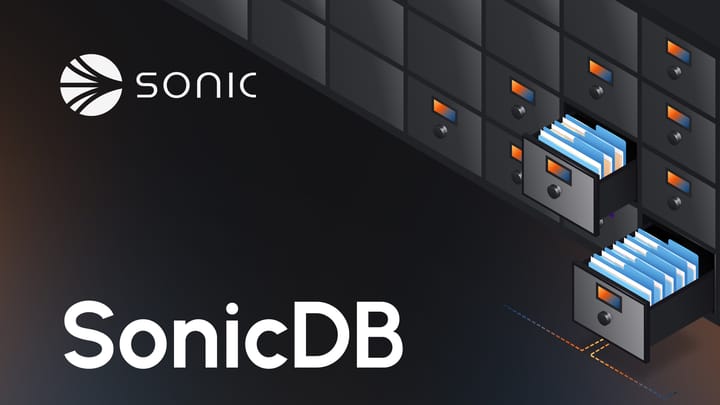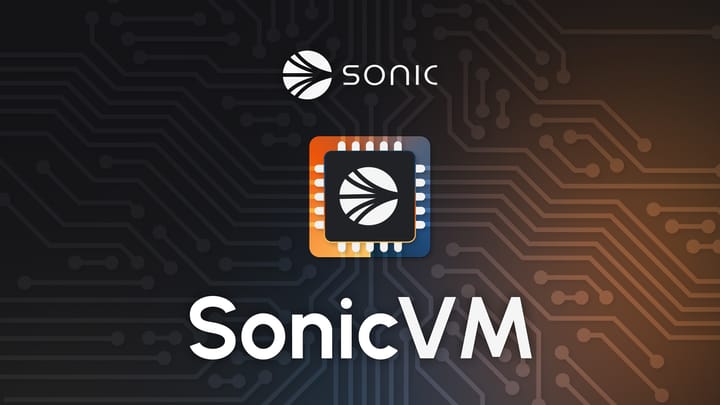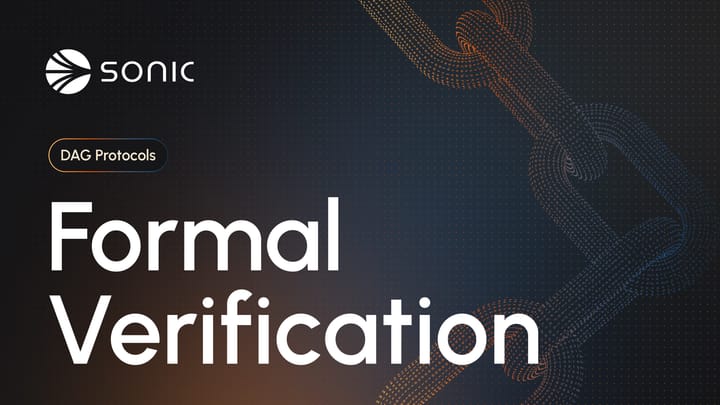Account Abstraction (EIP-7702) on Sonic — The Beginner's Guide
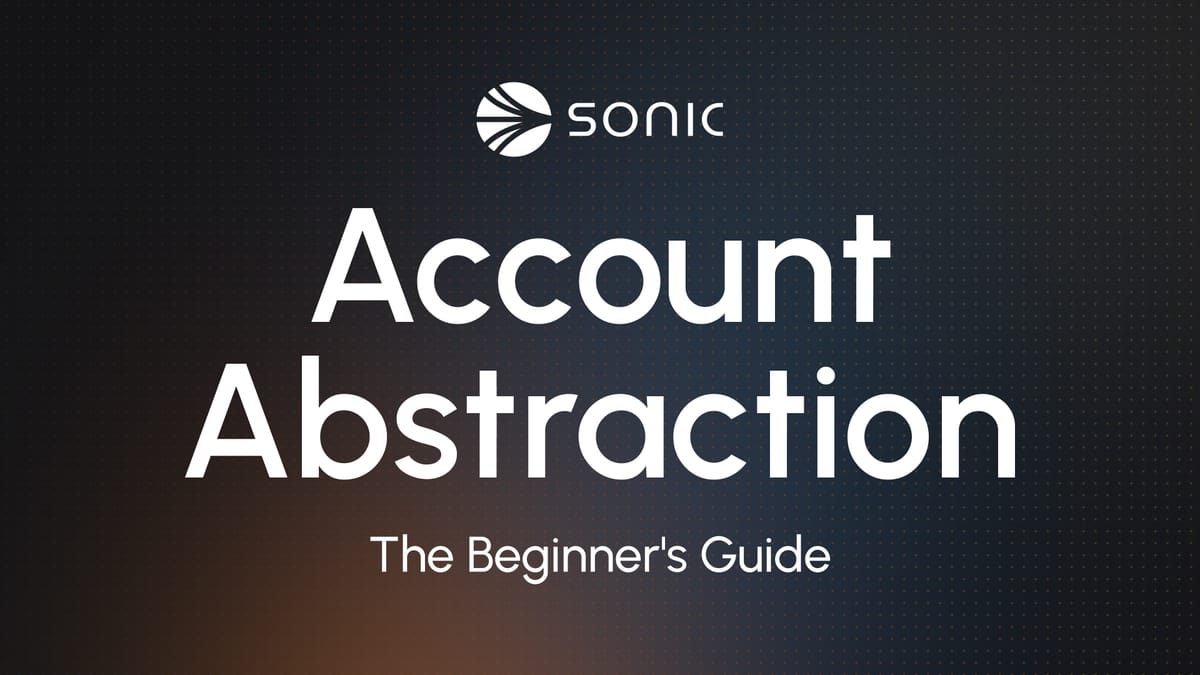
Blockchain wallets today are frustratingly limited.
Want to swap tokens? That's two transactions: approve and then swap. Need someone else to pay for your gas? Impossible. Lose your private key? Your funds are gone forever.
Account abstraction changes everything. With EIP-7702 arriving in Sonic's next client upgrade, your regular wallet gains smart contract superpowers: batch transactions, sponsored gas fees, social recovery, and more, all while keeping your existing address.
This article breaks down everything you need to know about account abstraction — how it works, its benefits and risks, and how Sonic’s unique Fee Monetization system makes it even more powerful.
— What is Account Abstraction?
— Key Benefits of Account Abstraction
— How EIP-7702 Works
— Fee Monetization: Sonic's Advantage
— Critical Security Risks
— Best Security Practices
— Conclusion

What is Account Abstraction?
Traditional wallets (externally owned accounts or EOAs) can initiate transactions, but they’re limited to simple actions like sending tokens or calling contracts. However, smart contracts can implement complex logic and programming, but they can’t initiate transactions themselves. This divide creates endless friction.
Account abstraction removes the separation between these two account types. It allows regular accounts to function more like smart contracts (called smart accounts) — programmable, flexible, and customizable.
With account abstraction, an account can define its own rules for how transactions are approved, how gas fees are paid, and what operations are allowed. It’s no longer limited to private key signatures or one action at a time. Instead, it can support alternative authentication methods, batch multiple steps into a single transaction, and introduce smarter security and automation, all while keeping the user in control.
Imagine logging into a blockchain game with a username and password, making in-game purchases, claiming your rewards, and having the game cover your gas fees, without prompting you to approve every transaction in your wallet. That’s account abstraction.
Key Benefits of Account Abstraction
For Users
For everyday users, account abstraction unlocks a smoother, smarter wallet experience—with more control, lower friction, and powerful new capabilities built in.
🔁 Batch Everything
Execute multiple DeFi operations in one transaction. Trade across DEXs, provide liquidity, and claim rewards with a single signature.
🎁 Gas Subsidies
Pay fees in any token or have apps sponsor your transactions entirely, making onboarding far more seamless.
🛡️ Enhanced Security
Implement spending limits, multi-signature requirements, or social recovery without deploying your own contract.
🧑🤝🧑 Social Recovery
Regain access to your account using trusted contacts or predefined methods—no more losing everything because of a misplaced private key.
🗝️ Session Keys
Grant limited permissions to apps. Games can execute small transactions without constant approvals while large operations still need your signature.
For Developers
For developers, account abstraction unlocks a new design space—where onboarding is seamless, transactions are programmable, and user experience is no longer limited by wallet constraints.
👨💻 Frictionless Onboarding
Sponsor new users' gas fees to remove barriers. Build apps that work for users who don't yet own S tokens.
📊 Dynamic Fees
Request additional fees, such as service fees, royalties, or protocol charges, directly within the transaction, making revenue flows seamless and programmable.
🤖 Advanced Automation
Create yield optimizers that rebalance automatically, trading bots with user-defined limits, or subscription services with programmable payments.
📲 Custom Authentication
Move beyond private keys. Allows users to use email, biometrics, or social logins while maintaining self-custody.
How EIP-7702 Works
EIP-7702 is the upgrade that allows for account abstraction. Essentially, it lets existing accounts temporarily "borrow" smart contract capabilities through delegation.
Your account stores a pointer to a smart contract deployed elsewhere. When someone interacts with your account, it executes that contract's code.
The process is simple:
- You sign an authorization specifying which smart contract to delegate to
- Your account now points to that contract
- Transactions to your account are executed using the delegated logic
- You can revoke the delegation anytime by pointing to the address(0)
Example: Instead of approving tokens then swapping (two transactions), you delegate to a contract that handles both in one atomic transaction — faster, cheaper, safer.
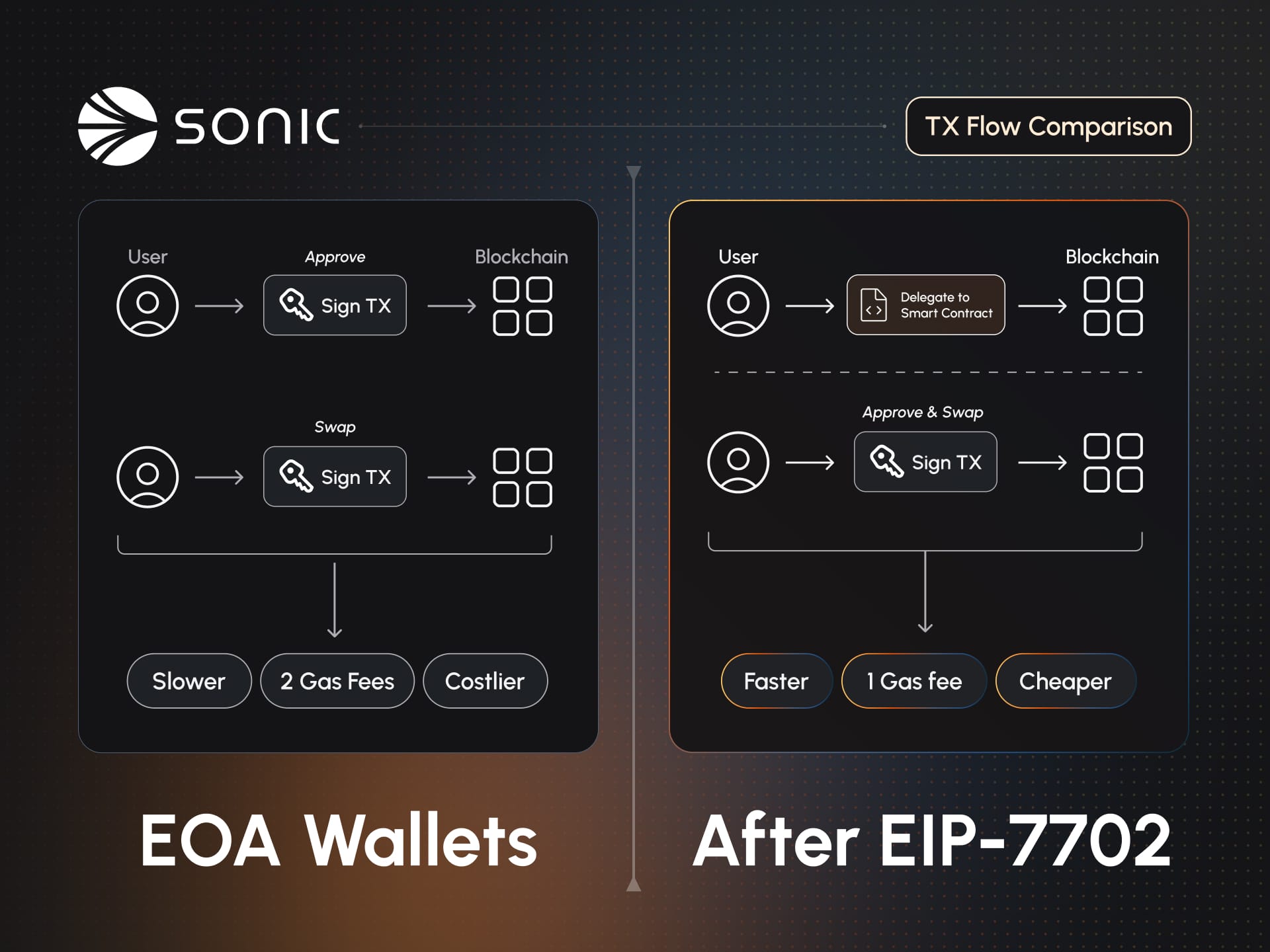
Fee Monetization: Sonic's Unique Advantage
While EIP-7702 works on any blockchain with Ethereum’s recent Pectra upgrade enabled, Sonic's Fee Monetization system creates unique opportunities. Developers earn 90% of network fees their apps generate, enabling sustainable economic models impossible elsewhere.
The combination of account abstraction and Fee Monetization unlocks entirely new design patterns, where user experience, automation, and sustainability all reinforce each other.
⛽ Self-Sustaining Gas Sponsorship
A DEX covers gas fees for trades over $100. Each trade generates network fees — 90% returned via FeeM — and can include dynamic fees like service charges. The result is a profitable model for gasless trading
💰 Automated Revenue Sharing
Smart accounts automatically claim FeeM rewards and distribute them to users, creating self-sustaining incentive loops.
📅 Subscription Services
Users pre-fund gas fees that generate FeeM rewards, automatically extending their subscriptions without manual payments.
This isn't possible on other chains where gas sponsorship is always a pure cost.
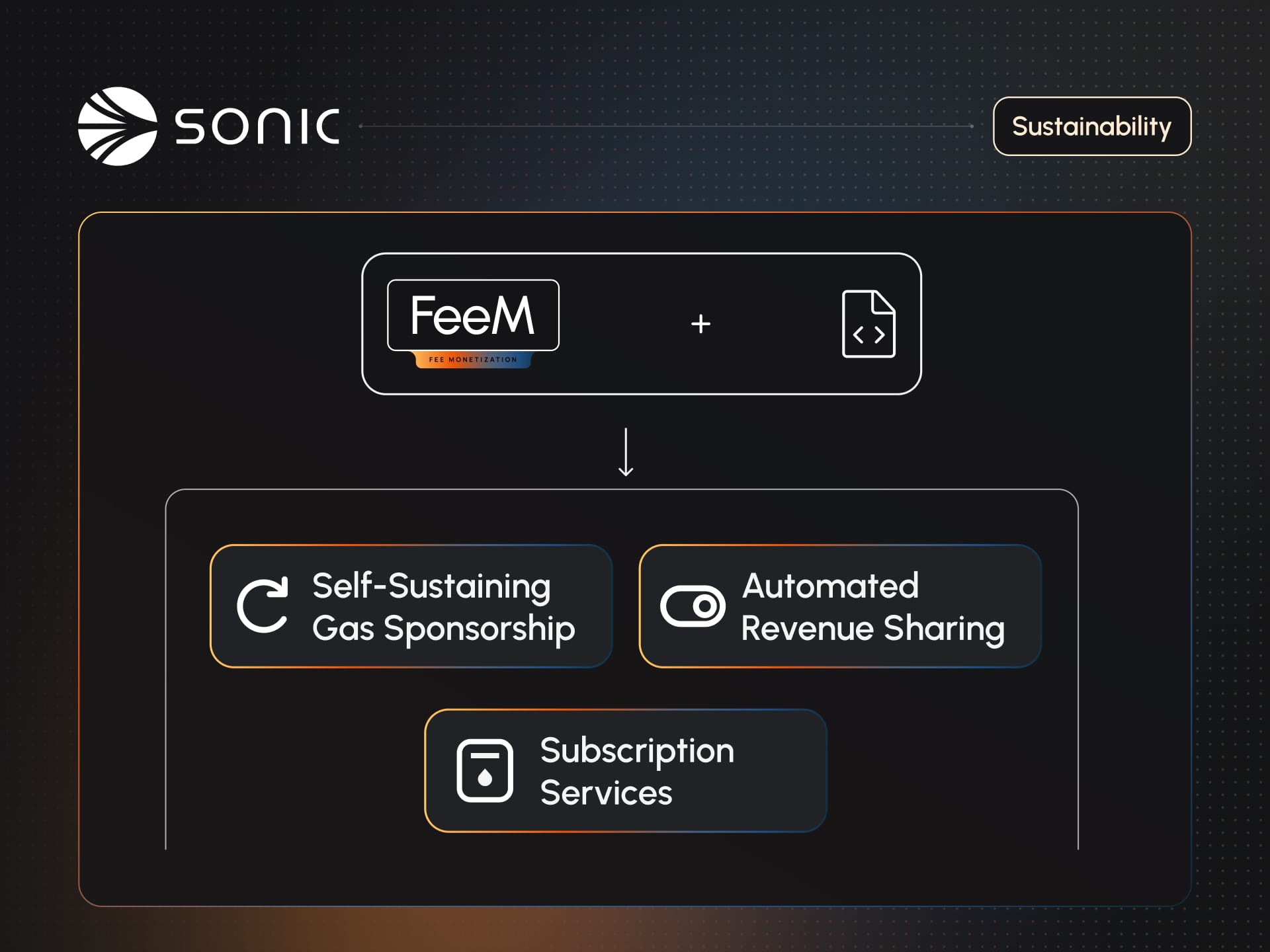
Critical Security Risks
With great power comes great responsibility. EIP-7702's flexibility introduces new attack vectors every user must understand.
The Big Three Risks
1. Malicious Delegations
Delegating to a compromised contract gives it full control over your account until revoked. Recent phishing attacks have stolen millions by tricking users into malicious delegations.
2. Persistent Authorization
Unlike regular transactions, delegations stay active indefinitely. A delegation from months ago could become a vulnerability if the contract is later compromised.
3. Hidden Operations
Batch transactions can hide malicious actions. What looks like a simple swap might include hidden approvals draining your wallet.
In March 2025, attackers stole $146,000 by:
- Creating a fake DeFi site promising high yields
- Requesting delegation to a "yield optimizer"
- Hiding token approvals in the batch operation
- Draining all approved tokens after users signed
The attack succeeded because users didn't realize they were granting permanent delegation powers.

Best Security Practices
For Users
Only Delegate to Trusted Contracts
Verify addresses character-by-character. If unsure, don't delegate. Legitimate services clearly explain their contracts.
Use Separate Accounts
Keep main holdings in regular EOAs that never delegate authority to a smart contract. Use smart accounts only for active trading with limited funds.
Regular Audits
Check active delegations monthly on SonicScan. Revoke unused delegations immediately.
Read Everything
Expand batch transactions and read each operation. Don't understand it? Don't sign it.
For Developers
Design for EIP-7702
Don't repurpose existing contracts. Build specifically for delegation with proper initialization patterns.
Atomic Operations
Combine delegation and initialization in one transaction to prevent front-running.
Clear Communication
Show users exactly what they're authorizing. Make revocation instructions obvious.
Get Audited
Professional security review before mainnet. Monitor for unusual activity patterns.
Technical Implementation
The new EIP-7702 causes challenges in implementing the blockchain itself. Our research team has already revealed some complexities of EIP-7702, such as showing that the scheduling of transactions in a block becomes an NP-hard problem.
With EIP-7702, more work will be pushed from the network layer into smart contracts. Hence, we must prepare for higher workloads on the chain. Our plan is to release a new consensus protocol, SonicCS 2.0, later this year with better performance characteristics.
Getting Ready
EIP-7702 arrives with Sonic's next client upgrade. The rollout phases:
- Network upgrade for new transaction type support
- Wallet updates with delegation interfaces
- App integration of smart account features
- Ecosystem maturity and best practices
Start preparing now:
- Users: Learn about delegation risks and identify use cases
- Developers: Study existing implementations and plan security audits
Conclusion
Account abstraction enabled by EIP-7702 transforms what's possible with blockchain wallets. Batch transactions, flexible gas payments, and programmable security arrive without requiring new addresses. On Sonic, Fee Monetization makes these features economically sustainable in ways impossible elsewhere.
However, this power requires responsibility. Users must understand delegation risks and practice safe habits. Developers must prioritize security above features. Together, we can build the next generation of blockchain applications, ones that finally deliver the seamless experience users deserve.
The upgrade is coming. Stay informed, stay secure, and get ready for the smart accounts on Sonic.

